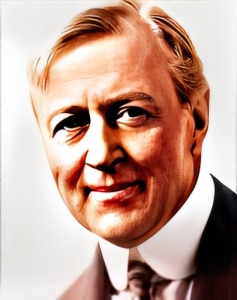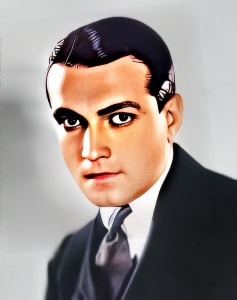 True Boardman (1882-1918) was an American actor and screenwriter known for his work in the early years of cinema.
True Boardman (1882-1918) was an American actor and screenwriter known for his work in the early years of cinema.
Born on August 15, 1882, in Oakland, California, Boardman had a relatively brief but influential career in the burgeoning film industry during the silent film era. His contributions to both acting and screenwriting left a lasting mark on the world of early Hollywood.
Boardman began his career in entertainment as a stage actor, performing in theater productions during the early 20th century. However, it was in the nascent world of silent film that he found his true calling. He transitioned into film acting and quickly made a name for himself as a versatile and talented performer.
One of True Boardman’s notable early film appearances was in the 1914 silent film “The Squaw Man,” directed by Cecil B. DeMille. This Western drama was one of the earliest feature-length films produced in Hollywood and contributed to the establishment of the American film industry. Boardman’s work in this film showcased his acting skills and his ability to adapt to various genres.
Boardman was known for his ability to portray a wide range of characters, from comedic roles to more serious and dramatic parts. His performances resonated with audiences and contributed to the growth of the film industry during its formative years.
In addition to his acting career, True Boardman was also a talented screenwriter. He penned screenplays for various silent films, adding another dimension to his contributions to early Hollywood. His dual role as an actor and screenwriter allowed him to have a deeper understanding of storytelling in cinema, and this knowledge was reflected in his work.
Boardman’s transition to screenwriting allowed him to be more involved in shaping the narratives of the films in which he acted. He understood the nuances of storytelling in the silent film era, where visual storytelling and expressive acting played crucial roles. His ability to write engaging screenplays and translate them into captivating performances on screen was a testament to his talent.
Tragically, True Boardman’s promising career was cut short when he contracted the Spanish flu during the 1918 influenza pandemic. At the young age of 36, he succumbed to the illness, leaving behind a legacy that included both his acting and screenwriting work in the silent film era.
The Spanish flu pandemic of 1918 had a significant impact on the film industry, with several notable figures falling victim to the deadly virus. Boardman’s untimely death marked a loss for early Hollywood and the world of silent cinema.
Although his career was relatively short, True Boardman’s contributions to the early film industry left an indelible mark. His ability to perform a wide range of roles and his talent as a screenwriter helped shape the narrative and character-driven aspects of silent cinema. His work continues to be celebrated by film enthusiasts and historians as part of the rich history of early Hollywood.




